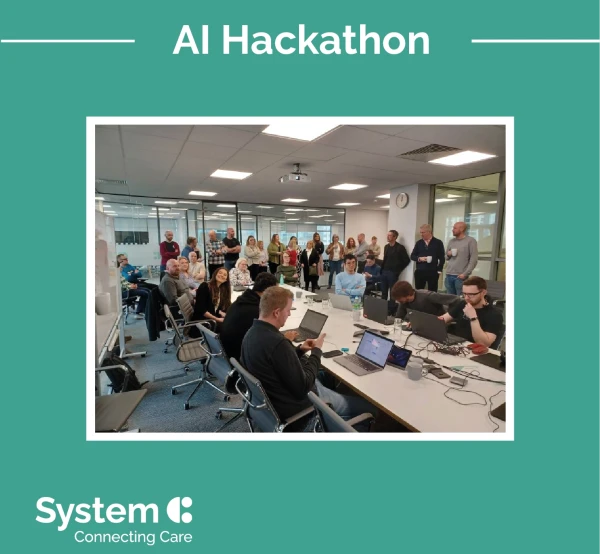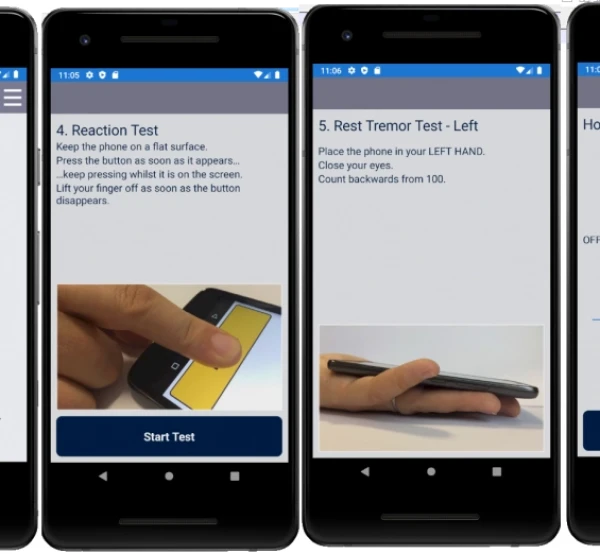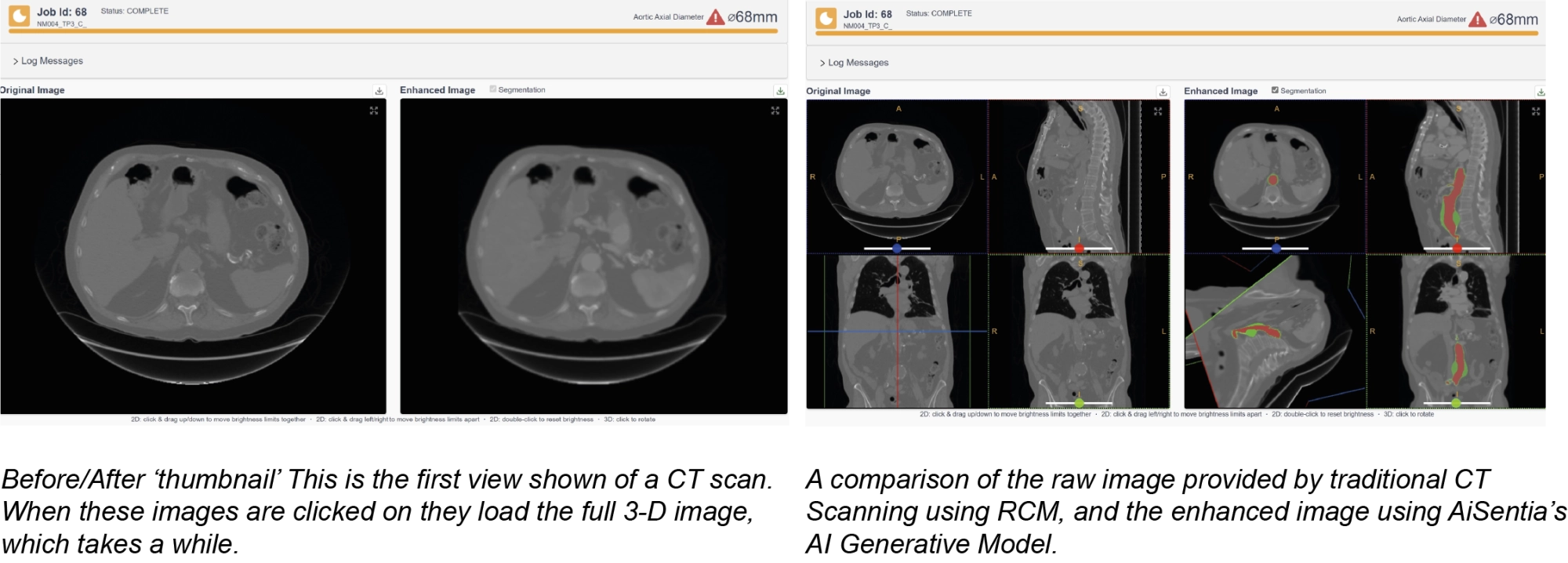
What Did System C Do?
System C’s Innovation Delivery team has partnered with AiSentia to develop a working prototype, to enable the application to be deployed within the healthcare sector.
The Innovation Delivery team has developed a secure, user-friendly web front end and a desktop bulk tool to help support the deployment of the application and enhance the accuracy of CT scans. These prototypes will undergo rigorous testing throughout all key stages within its lifecycle. The software processing will be cloud based, which enables data to be effortlessly synchronised and will help to optimise data flow. Whilst cloud processing allows a streamlined communication process it also helps to increase security and protect patient data as well as making it more accessible to clinicians.
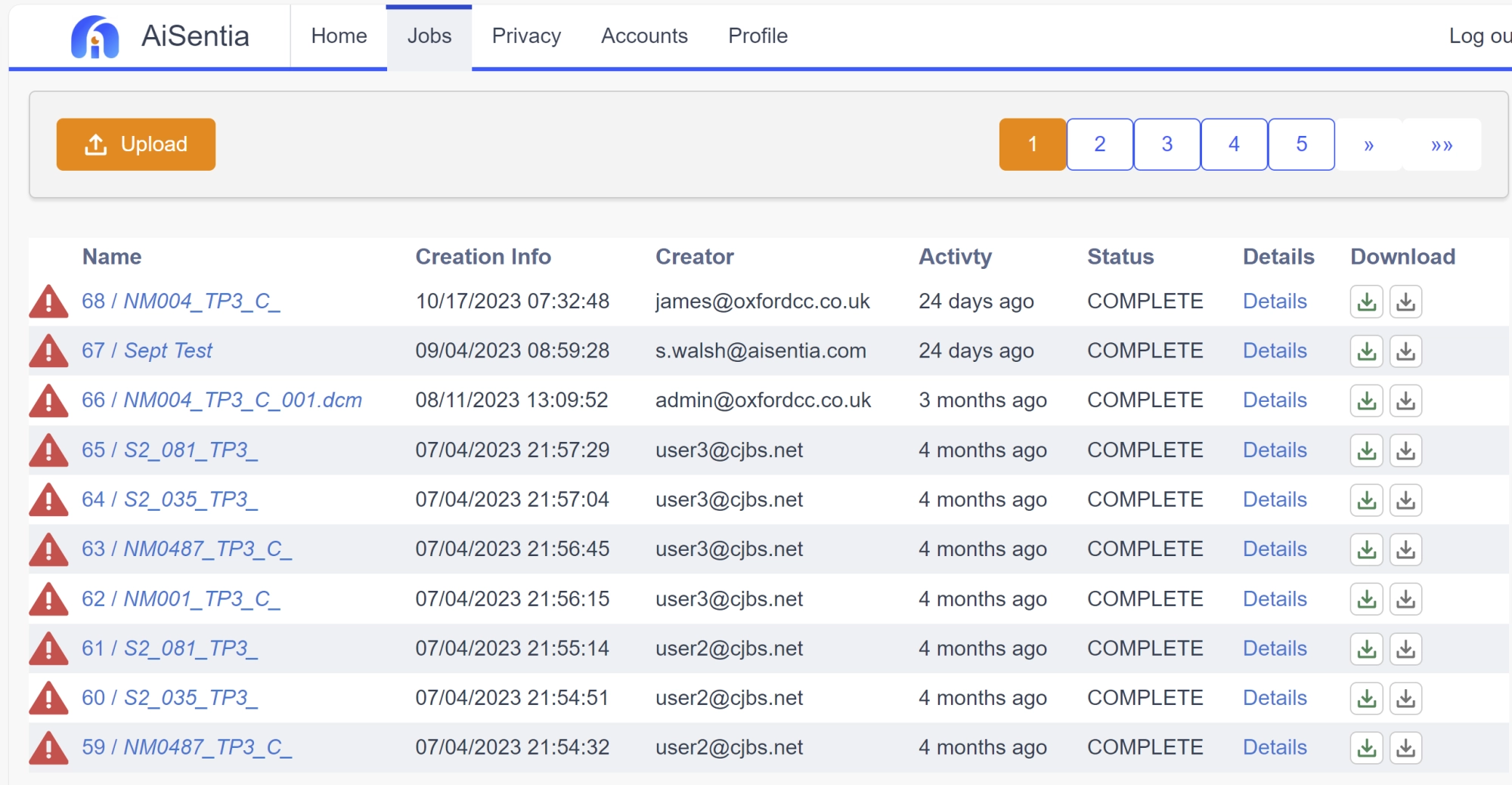
A detailed look at the app jobs page which allows users to track job status.
System C’s product team helped establish a Python script from AiSentia’s MATLAB code which enabled the generation of contrast enhancements of the affected areas of the body. Although AiSentia’s model is not yet available for clinical use, a prototype of the product was forged. As a result of the collaboration AiSentia now have an excellent quality prototype of their image enhancement system, which is suitable for further development as a medical device. By generating a prototype of AiSentia’s vision System C can gauge production costs, test functionalities, and gain constructive feedback from clinicians and regulators. This prototype gives AiSentia a strong platform to support clinical validation for their approach.
"We were able to convert the python pipeline in such a way that we could host it on a generic cloud platform, without requiring a GPU or other specialised hardware."
Achievements
AiSentia’s technology successfully eliminates the need for harmful contrast agents which cause discomfort and unnecessary radiation exposure. It also provides a pathway to seamlessly integrate into the current clinical workflow.
By achieving AiSentia’s vision, CT and X-Ray scans can become more efficient and help radiology departments raise their productivity by up to 100%.
James Greig, our lead product developer shared his thoughts on AiSentia’s solution,
"This software could provide huge support for radiographers; it would help them to save time, investigate more cases, and thus save more lives."
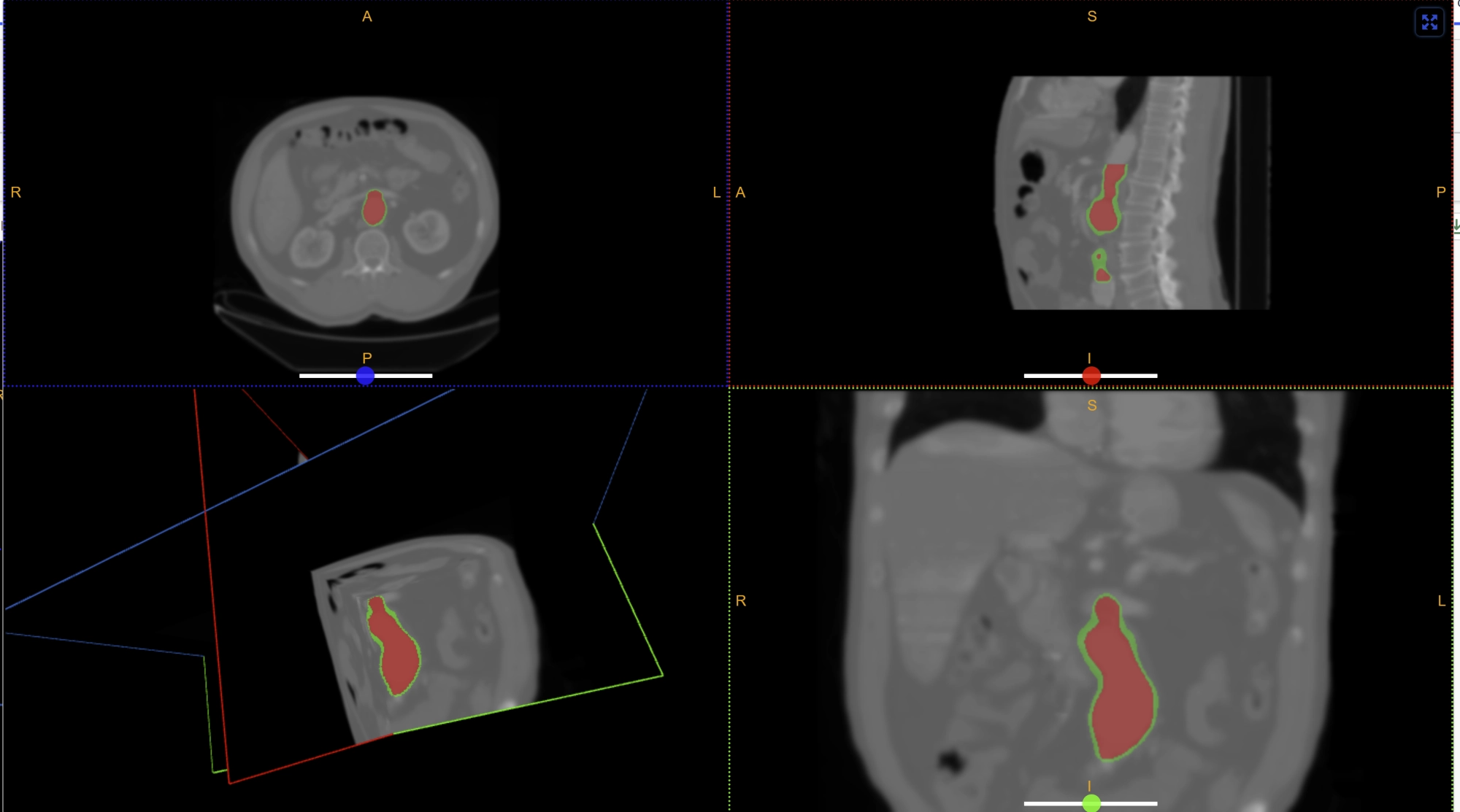 A single enhanced image, expanded to full screen.
A single enhanced image, expanded to full screen.
Next Steps
Discover more success stories by checking out our extensive selection of case studies.
We are experienced in developing complex software solutions for the healthcare industry. Please contact us to discuss your ideas, we would love to hear from you.
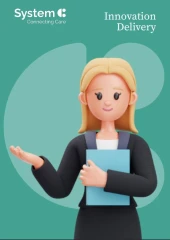



 A single enhanced image, expanded to full screen.
A single enhanced image, expanded to full screen.